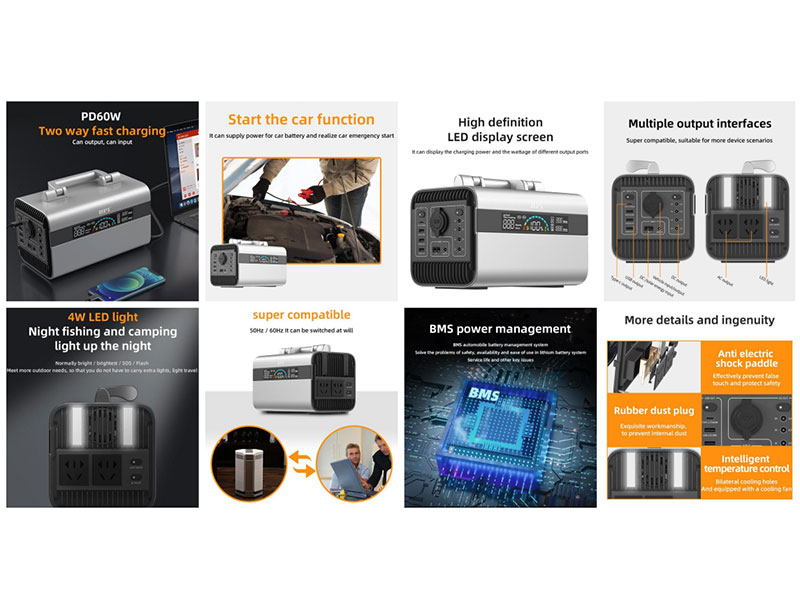Portable power, referred to as temporary power, is defined as an electrical system that supplies electrical power distribution for a project that is only intended for a short period of time.
Portable Power Station is a rechargeable battery-powered generator. Equipped with AC outlet, DC carport and USB charging ports, they can keep all your gear charged, from smartphones, laptops, to CPAP and appliances, like mini coolers, electric grill and coffee maker, etc.
Having a portable power station charger allows you to go camping and still use your smartphone or other appliances there. Additionally, a power station battery charger can help you if there’s a power outage in the area.

Portable power stations are generally designed to power smaller electronic devices and appliances, from phones and table fans to heavy-duty work lights and CPAP machines. Pay attention to the estimated watt-hours each brand provides in its specs to determine which model makes the most sense for what you’d like to power.
If a company says its portable power station has 200 watt-hours, it should be able power a device with a 1-watt output for about 200 hours. I go into more detail on this in the “How we test” section below, but consider the wattage of the device or devices you want to power and then the number of watt-hours your portable power station would need to have.
If you have a power station that is rated at 1,000 watt-hours, and you plug in a device, let’s say a tv, rated at 100 watts, then you can divide that 1,000 by 100 and say that it will run for 10 hours.
However, this isn’t usually the case. The industry ‘standard’ is to say that you should take 85% of the total capacity for that math. In that case, 850 watt-hours divided by 100 watts for the tv would be 8.5 hours.
The best portable power stations reduce the need for fuel-powered generators and have made huge strides since the first prototypes came out.
Post time: Oct-14-2022
